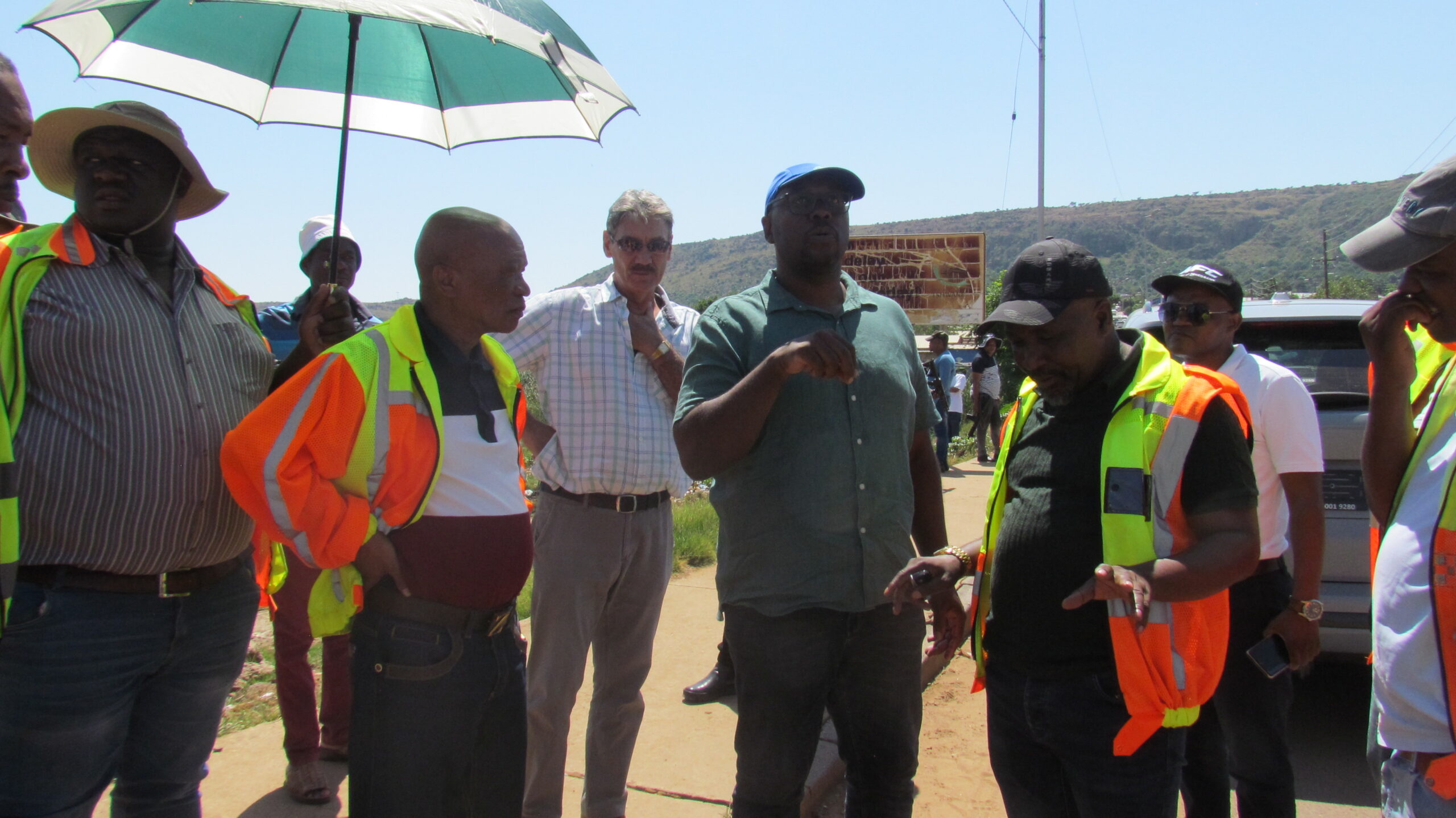
Mamelodi-based taxi associations MATA and MALLDTA are looking forward to working with the City of Tshwane to fix taxi routes in the Far East of Mamelodi.
Taxi associations meet with the city of Tshwane officials and conducted an oversight inspection of the road last Monday in Mamelodi Far east, Tshwane.
Taxi association promise to contribute G5 soil.
MATA’s chairperson Ben Maredi told Tshwane Talks that they as taxi organisations held a meeting with City of Tshwane and invited them to come and see the damaged routes.
“Although we would have liked to fix the roads ourselves from start to finish, we have realised that it would be impossible as that job is very expensive, that is why brought the city officials here and they promised to support us in this matter,” said Maredi.
“The officials came to see the damaged routes and I am happy that they have committed to help though they don’t have budget for G5 soil.,” he said.
“We committed ourselves as the two taxi associations that we will provide the municipality with G5 soil so that our routes can be fixed,” said Maredi.
MALLDTA chairperson Stemmer Monageng told Tshwane Talks that they engaged City of Tshwane Group Head Peko Lehlonkane and informed him about the challenges that they are facing on the damaged taxi routes.
Monageng expressed happiness that Lehlonkane send City officials on Monday to do loco inspection on the routes and see for themselves the challenges on the route.
“The problem with the City of Tshwane is that they don’t have budget to fix the routes in the Far East of Mamelodi,” said Monageng.
“Be that as it may, we as two taxi associations have committed to use our own funds to fix the taxi routes by contributing the G5 soil and the municipality will have to provide the rest,” he explained.
“We are doing all this because it is our taxi vehicles which are using these routes and the people here are our community and we will use the association’s money in this regard to bring harmony on these routes,” explained Monageng.
“I want to emphasised that we are only supplying the G5 soil, and the municipality will have to come up with a budget to put tar on these routes,” he said.
“We are very concerned about these routes as they damage our taxi vehicles as traffic police always issue tickets for unroadworthy cars,” said Maredi as he insisted that the municipality must give them proper service as the taxi industry.
“It is disappointing that politicians are quick to come to this area when campaigning for votes but are nowhere to be seen when they must deliver services like fixing the roads,” said Monageng.
“Right now, we have to use the money which we should be using on our members to fix these routes,” he said as he pointed out that it is not their responsibility to fix routes.
City of Tshwane spokesperson Lindela Mashigo said City of Tshwane has partnered with the Taxi industry in finding the solutions.
The City’s Region 6 Roads has provided the resources – in terms of personnel and machinery to grade the affected roads.
“City of Tshwane plans for the provision of basic services to the community inclusive of roads and stormwater by the City will be realised.
The municipality was aware of the bad condition of the road, and they are part of the priorities of the City.
The city is characterized by roads and storm water infrastructure backlogs,” said Mashigo.
Mashigo said the industry was informed that currently, there are limited resources, and the City is going to do road resurfacing in the Mamelodi area in this financial year.
The budget was allocated but the budget was mainly for reactive maintenance.
The city is characterized by huge infrastructure backlog and as a result not all areas were able to be funded.
“The Medium-Term Revenue and Expenditure Framework (MTREF) budget process for 2024/2025 financial year has commenced and submission will be made for possible funding and based on the outcome of the process the City will be able to confirm the allocated budget.
Such confirmation of possible funding will only be communicated once the budget for 2024/2025 has been approved by the City of Tshwane’s Council in May/June 2024,” he said.
Tshwane Talks readers have been able to read stories in this publication for free for over two years now. We still want our readers to access our stories for free, but we are asking those among our readers who can afford it to contribute at least R30 a month to cover some of the costs of publishing this independent, non-aligned online newspaper which gives a voice to all sectors of society irrespective of race, colour, creed, religion, or political affiliation. You may make your contribution by depositing at least R30 a month into Tshwane Talks' bank account. Details are as follows:
Bank Details
Bank: Standard Bank
Account Number: 10225548834
Account Type: Cheque Account